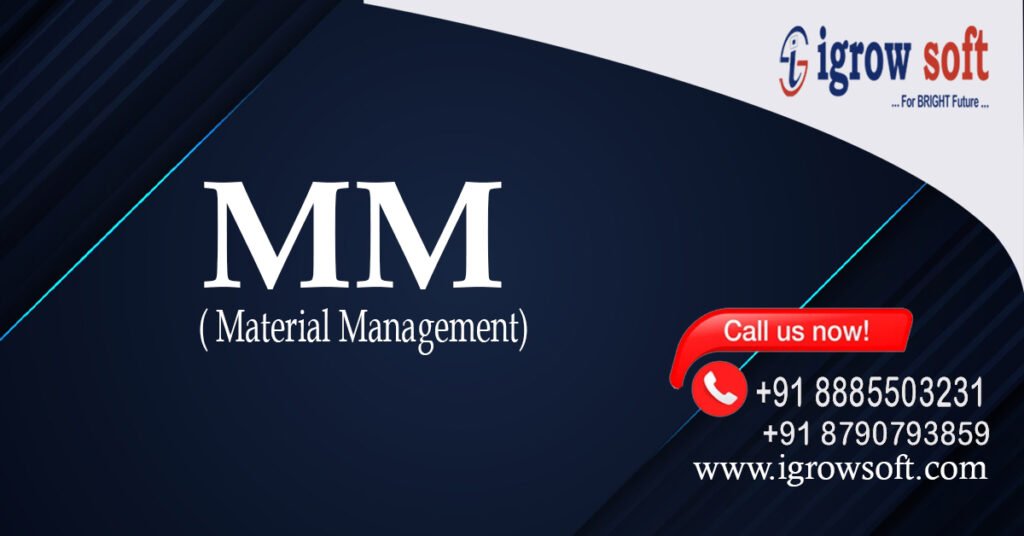
No idea what SAP MM is? No worries. Here’s in detailed. Firstly, SAP stands for “Systems, Applications and Products in Data Processing.” In other words, it is a German IT company that sells business software to customers all over the world. And one of the most popular products it sells is SAP Material Management (MM). So what does this mean? I’ll break it down for you!
If you want to know more about MM or how SAP works in general, please go with SAP MM Online training Institutes in Hyderabad.
What is meant by SAP MM (Material Management)
SAP Material Management is a system of processes and standard operating procedures that help your company manage their materials. It includes managing purchase orders, invoicing, shipping and receiving, inventory management, vendor management and quality planning.
It also includes the processes which are required to complete the M-P-X process cycle within a company’s supply chain. In order to achieve this cycle within the company’s supply chain it requires materials planning in advance of producing on demand products as well as effective use of production capacity so that production runs at full speed throughout the entire day.
This is a technology which enables companies to produce to demand.
Here are a few of the notable benefits of SAP MM:
SAP MM online course can help maximize material efficiency by providing you with the tools for managing materials for maintaining production. It is a solution that can help you identify and manage your company’s supply chain effectively, as well as improve your overall performance in terms of purchasing and logistics.
The following are the benefits that can be derived from SAP MM:
Both SA and MG material management tools have helped boost revenue, reduced product returns, lessened inventory shrink and increased cash flow for some companies by an average of 20% and up to 50%, respectively.
Human Resource Management is an area of management concerned with the effective use and management of human resources.
Human resource management encompasses areas of responsibility such as:
1) Recruitment:It is the process by which a business manages its employees and their training and development.
2) Compensation Management: A process that determines an appropriate remuneration package for a job based on principles like company philosophy, performance review data, internal salary range, industry trends, and labor market data.
3) Employee Relations: This field refers to creating the right employee working environment for your team; hiring, motivating and rewarding are all factors here.
4) Employee and Labor Law: These laws include the Fair Labor Standards Act, Federal sector Equal Employment Opportunity legislation, and state-by-state labor laws.
5) Job Analysis: This is the process of assessing a job description, job description requirements and a job analysis plan.
6) Employee Selection: This is the process of hiring and training people to perform a job.
7) Human Resources: A combination of HR and Training that offer services including HR training, career management, employee development & succession planning (job hunting), management strategies, reports and summaries for decision making by all levels of management.
8) Training and Development: A combination of HR and Training that offer services including HR training, career management, employee development & succession planning (job hunting), management strategies, reports and summaries for decision making by all levels of management.
9) Labor Relations: This is the process to manage relations between labor unions and management.
10) Compensation Policies: A process that determines an appropriate remuneration package for a job based on principles like company philosophy, performance review data, internal salary range, industry trends, and labor market data.
Conclusion :
SAP MM Online Course, Material management, inventory control, and warehouse management are all aspects of the supply chain that the SAP MM (Material Management) Module assists enterprises with. It is a section of the logistical activities of SAP ECC, which are made up of a number of components and sub components. Master Data, Purchasing, and Inventory are the most well-known and often utilized components.

